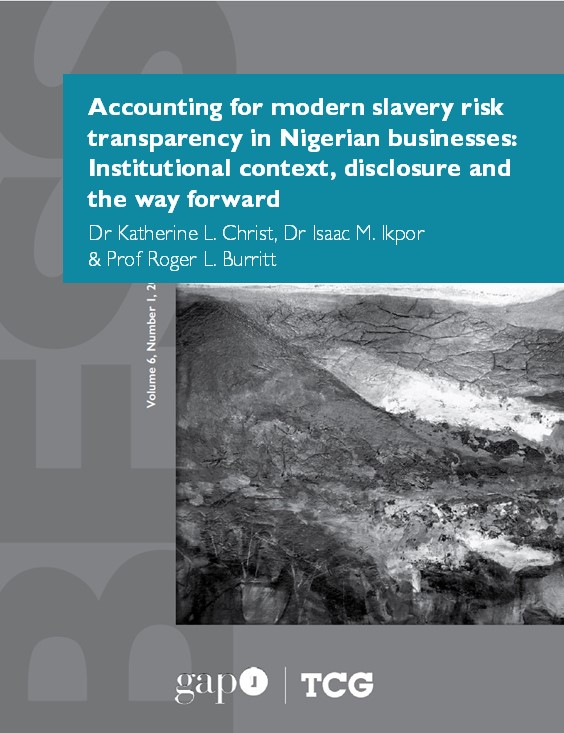Accounting for modern slavery risk transparency in Nigerian businesses: Institutional context, disclosure and the way forward
DOI:
https://doi.org/10.54337/ojs.bess.v6i1.8717Palabras clave:
Modern slavery, supply chains, Nigerian businesses, corporate disclosuresResumen
This paper examines the state of engagement of Nigerian companies with modern slavery risk and how current accounting and reporting might be better enabled to contribute towards ending modern slavery practices. Crane's (2013) theoretical framework is used to guide understanding of the contexts behind modern slavery risk disclosure in Nigeria, including industry, socioeconomic, regulatory, cultural and geographic factors. Cross-sectional content and thematic analysis are undertaken, as published in the annual reports, sustainability reports and websites of top companies listed on the Nigerian Stock Exchange. In line with Crane (2013), supply chain codes of conduct and collaboration are identified as a possible first-stage intervention moderator between industry context and ending modern slavery in Nigeria. However, a second moderator, affordable micro-credit, is notably absent from disclosures, and a third moderator, private or civil regulators, as a substitute for government, is considered ineffective. Management capability mediators as circuit breakers, reducing accounting opacity, require further research. This is the first paper to present evidence about modern slavery supply chain risk disclosures in Nigeria and to develop possible contextual, moderating and mediating variables aimed at policies and actions to end modern slavery practices in Nigeria.

Descargas
Publicado
Número
Sección
Licencia
Derechos de autor 2024 Dr Katherine L. Christ, Dr Isaac M. Ikpor, Prof Roger L. Burritt

Esta obra está bajo una licencia internacional Creative Commons Reconocimiento-NoComercial-SinObraDerivada 3.0.
This journal provides immediate open access to its content on the principle that making research freely available to the public supports a greater global exchange of knowledge.
Articles published in BESS follow the license Creative Commons Attribution-NonCommercial-NoDerivs 3.0 Unported (CC BY-NC-ND 3.0)
Authors retain copyright and grant the journal right of first publication with the work simultaneously licensed under a Creative Commons Attribution License: Attribution - NonCommercial - NoDerivs (by-nc-nd).
Further information about Creative Commons




